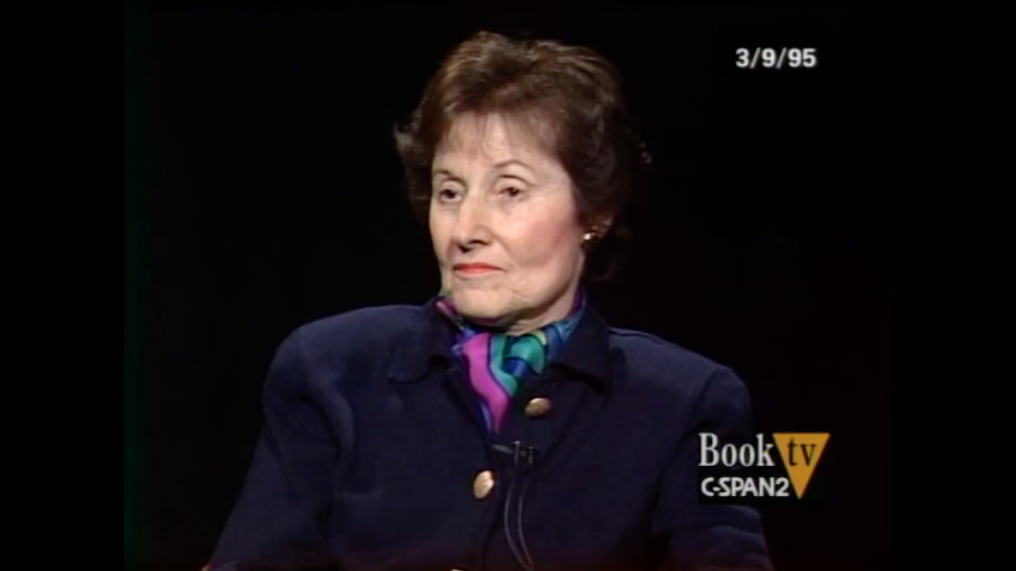Gertrude Himmelfarb has died. She was 97. She was among a handful of the most important scholars ever of Victorian England, and of its major intellectuals, political figures, religious figures and literary persons of that remarkable span of time that occurred during Queen Victoria’s long reign in the 19th century.
But Himmelfarb’s particular importance and relevance was not only the scholarship of that vivid period of British history but also its moral and social code-application to what the United States was becoming after the social and moral revolution of the 1960s and 70s. That was the era when the Judeo-Christian moral standards in marriage, family, parenting, general social norms and timeless standards of right and wrong were routinely and frontally assaulted and undermined by an astringent moral relativism that sought to crash the concept of stability and continuity.
Himmelfarb, who as a young woman had been a serious student of Karl Marx and tended leftward in social policy, came to see that the Victorians’ virtues and values provided the kinds of guardrails that made for a healthy, confident and vibrant moral ecology. Himmelfarb was Jewish, and she had a lot of respect and regard for American evangelicals who refused to alter or sublimate core moral convictions and conventions in an era when situational ethics and the broad breakdown of the most vital institution, the family, seemed to go hand in hand, and be in overdrive.
The virtues she admired in the Victorians – hard work, self-respect and self-reliance, timeless values about good and evil, right and wrong – were ones she felt Americans of the 20th and 21st centuries could benefit from and emulate as always-relevant and always-timely.
“For Victorians,” she wrote, “these virtues were fixed and certain. They were the standards against which behavior could and should be measured … When conduct fell short of those standards, it was judged in moral terms as bad, wrong, or evil – not, as is more often the case today, as misguided, undesirable, or (the most recent corruption of the moral vocabulary) ‘inappropriate.’”
She sensed “a grievous moral disorder” following the uproar of the 1960s – not only President Lyndon Johnson’s Great Society and its impact on families, marriage and America’s urban core and poverty – but also the damaging loss of the search for truth and the making of good citizens which had been the reason and purpose of American education, and now under direct assault on far too many American campuses and in classrooms.
She enjoyed a great and long marriage to Irving Kristol, one of the founders of what became known as neoconservatism, and for many years, her husband was far better known as a public intellectual and magazine editor, author, and lecturer. As the years pass – Irving died in 2009 – it is Himmelfarb’s scholarship on the Victorians and its importance for today that emerges as important and applicable as ever. She often wrote about the need for a “re-moralization” of America and the West. She was prescient, and she was right.
She told a journalist in 1995: “Virtues are very hard. Vices are easy to come by. Once young people had the leisure and money to indulge themselves, it was almost inevitable that they do it.” Just so.
I was honored to have met her, and spent two sustained, remarkable hours with her in 2003 in vigorous conversation and dialogue. She was deeply concerned about identity politics and decreasing standards in literature on campuses and in higher learning. She was particularly concerned that elites in America had, by and large, given up on any felt need or sense of personal responsibility for standards and ethics that she felt they were duty-bound to uphold, model and champion.
It was an echo of a statement she had made more than a decade earlier: “Self-discipline is important for the upper classes, especially today in an affluent, consumerist, very highly individualistic society, where it is so easy to be self-indulgent materially, morally, and sexually. It is very important for the working classes and should be for what is now called the underclass.”
Gertrude Himmelfarb was a gifted public intellectual and commanding prose stylist; a writer of many important books and essays; and overall, she was in the front ranks of scholars and moralists who will still matter a hundred years from now. Her scholarship and voice in the public square will be deeply missed because the narrative of her professional life and vocation never mattered more than now — a true testament to her great mind and great heart.






